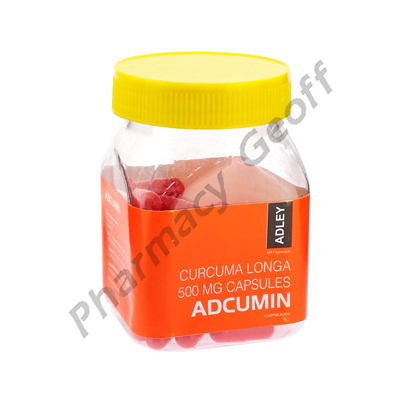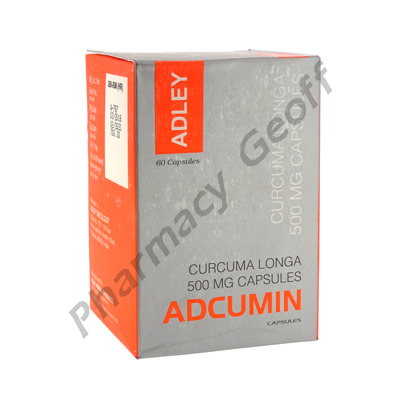Adcumin (Curcuma Longa)
What is Adcumin (Curcuma Longa) Used For?
Adcumin (Curcuma Longa) is a natural substance used to support the condition
and relieve pain in patients with irritable bowel syndrome, arthroses,
rheumatoid arthritis, spinal diseases, endometriosis, pain during physical
exertion, neurodegenerative diseases, depression, inflammatory bowel diseases,
yeast infection in intestines.Also, Adcumin (Curcuma Longa) is used for
atherosclerosis prevention.
Turmeric exhibits antioxidant properties, supports joints health, and helps
relieve slight pain associated with physical activity by modulating the
production of cytokines and other signaling molecules. Turmeric is an
inhibitor of phospholipase A2, cyclooxygenase, lipoxygenase, enzymes that play
a key role in the cascade of enzymatic reactions of acute inflammation.
Adcumin (Curcuma Longa) supports the body’s efforts to produce healthy cell
growth and inhibits unhealthy cell growth in certain cell lines (anticancer
effect). Also, Adcumin (Curcuma Longa) maintains a healthy state of the brain,
neurons and improves mood.
In addition, Adcumin (Curcuma Longa) promotes microbial health, balance of low
density and high density lipoprotein.
Adcumin (Curcuma Longa) Dosage and Administration
Always follow your doctor`s instructions when using Adcumin (Curcuma Longa) to
get the safest and most effective results from use of this drug. The dosage is
prescribed by the doctor individually for each patient. The recommended dose
is 1 tablet (500 mg) 1-2 times a day, with meals.
Side effects of Adcumin (Curcuma Longa)
The use of Adcumin (Curcuma Longa) may cause side effects in some patients
including:
- allergic reactions of the skin (skin rash, itching, urticaria)
- stomach ache
- nausea
- vomiting
- dizziness
- diarrhea
Contact your doctor immediately if you experience any serious or worrying
symptoms.
Precautions when taking Adcumin (Curcuma Longa)
Before the use Adcumin (Curcuma Longa) consultation of the doctor is
recommended. Do not exceed the recommended daily dose.
When planning pregnancy, during pregnancy and lactation, as well as when
taking anticoagulants and anticancer drugs, you should consult with your
doctor.
|








